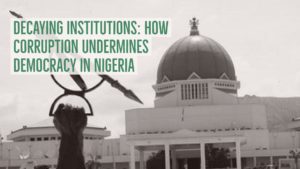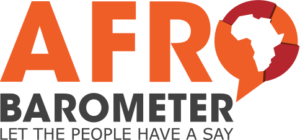The two major parties contesting Nigerian presidential and parliamentary elections, originally scheduled for last weekend but delayed at the last moment, have said they will continue campaigning despite a call from the electoral commission (AfricaNews) for a halt. President Muhammadu Buhari called on police to be “ruthless” with vote-riggers, drawing concern from the opposition (BBC. HT:CFR).
 The International Republican Institute (IRI) and the National Democratic Institute’s (NDI)* joint international election observation mission for Nigeria’s 2019 elections has fully endorsed the postponement.
The International Republican Institute (IRI) and the National Democratic Institute’s (NDI)* joint international election observation mission for Nigeria’s 2019 elections has fully endorsed the postponement.
The IRI/NDI Mission appreciates INEC’s commitment to holding credible democratic elections, it said in a statement:
While we understand it is better to delay the elections than to disenfranchise voters due to logistical obstacles, NDI/IRI regret that INEC underestimated the challenges associated with the administration of the elections, leading to the decision to postpone them. Despite repeated assurances that logistical arrangements were in order, the Commission waited until the morning of the election to announce the delay.
 The authorities must act now to win back trust and reduce risks of violence, says the International Crisis Group’s Nigeria expert Nnamdi Obasi.
The authorities must act now to win back trust and reduce risks of violence, says the International Crisis Group’s Nigeria expert Nnamdi Obasi.
“Nigeria’s international partners should …. maintain close watch on the evolving situation and flag any indications of manipulation or intimidation of the electoral agency,” he states.
“Most importantly, international observers who were already in the country for the February 16 date, should be especially vigilant about the activities of the electoral agency and security forces, not only in those states where delivery of materials was delayed but also in others where already delivered materials could be tampered with.”
However, many Nigerians are not buying it. Instead, they are seeing the postponement as part of a strategy to throw the elections, most often to incumbent president Muhammadu Buhari, notes CFR analyst John Campbell. They note that INEC had given assurances twenty-four hours before the polls were to open that all systems were go. The current INEC chairman lacks the personal prestige and reputation for integrity enjoyed by his predecessor Attahiru Jega, further fueling skepticism about INEC’s “excuses.”
Like in Egypt or Pakistan—countries where elected leaders are often overshadowed by senior officers—the military plays an outsize role here, and not just in the form of prospective political candidates, says Eromo Egbejule, the West Africa editor of The Africa Report. Former officers hold seats in private-sector boardrooms and bankroll political campaigns, too. The longer that continues, the harder it becomes to separate the civilian leadership from the military’s top brass, and the worse the impact on public life in Nigeria, he writes for the Atlantic:
“As a result of the kind of funds that they had access to while the military was in power, and the fact that they ingratiated themselves into Nigeria’s power structures, they wield a lot of access to Nigeria’s patronage networks,” Cheta Nwanze, the head of research at the Lagos-based SBM Intelligence, a risk-advisory firm, told me about the military’s influence.
 While the region’s governance landscape continues to shift, the United States is failing to make commensurate investments and is falling behind in revamping its policies and tactics, according to Judd Devermont, Director of the CSIS Africa Program (see below):
While the region’s governance landscape continues to shift, the United States is failing to make commensurate investments and is falling behind in revamping its policies and tactics, according to Judd Devermont, Director of the CSIS Africa Program (see below):
The United States has dedicated limited resources and personnel to allocate for most elections outside of Nigeria and possibly Ethiopia in 2020. Even when there is considerable interest and attention, the United States and other international stakeholders have missed opportunities to respond to warning signs. For instance, the joint National Democratic Institute (NDI)/International Republic Institute (IRI) delegation in September 2018 flagged vote-buying in the Nigerian gubernatorial election as a threat to credible elections.
Support for elections remains high —an Afrobarometer poll this month showed that 72 percent of Nigerians believe elections are the best way to choose the country’s leaders, but that figure was down from 82 percent in 2003, Egbejule adds.
“If you look at African history, you will come to the conclusion that even in cases where military intervention may have been a quick fix in a particular context, in the long run, strongman rule was extremely detrimental to our continent,” said Chris Fomunyoh, the Africa director of the National Democratic Institute, which has observed all national elections in Nigeria since 1999.
“In today’s Africa, with youths who see themselves as citizens of the world and who aspire to have [the] same liberties as elsewhere, there can be no rationale for throwing them and the continent back to the dark days of strongman rule.”
Whoever wins, however, the business community in Nigeria has a role to play in improving democratic and economic opportunity for all, says Ryan Musser, a Program Officer for Africa at CIPE.* The private sector can do so by remaining engaged with government, advocating solutions to reduce economic barriers, tackle corruption, and increase economic opportunity for all Nigerians and to ensure that democracy is working everyone.
*Core partners of the National Endowment for Democracy.








